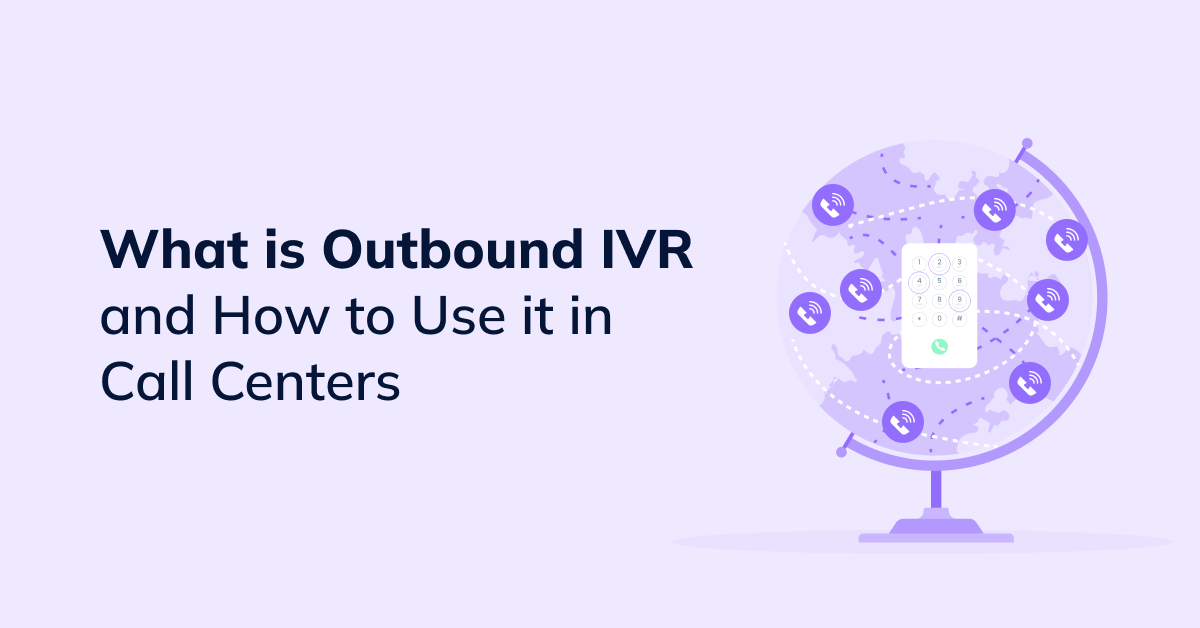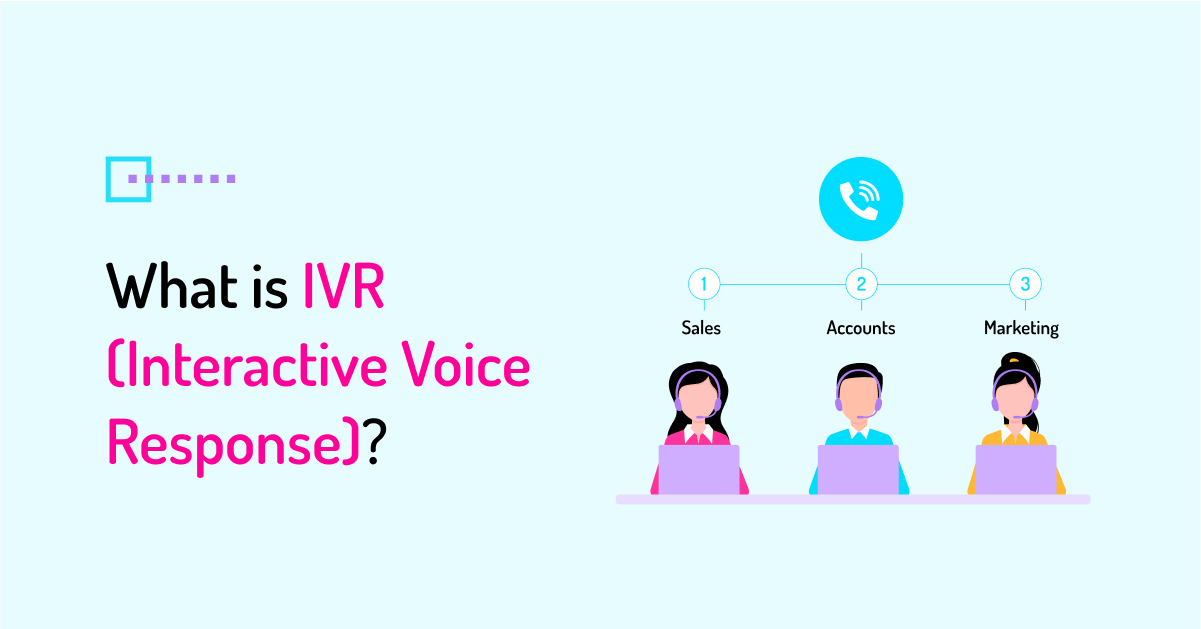Communications Platform as a Service (CPaaS) offers easy integration of communication services like voice, video, and messaging into your existing business applications through APIs. The cloud-based delivery model of CPaaS solutions enables increased flexibility, scalability, and cost-efficiency, making CPaaS an ideal choice for both small and large businesses. CPaaS is also known to be one of the fastest-growing communication industries today. According to a report published by Acumen Research and Consulting, the CPaaS market size is expected to reach USD 130.8 billion by 2032, rising from USD 11.8 billion in 2022.
What is CPaaS?
CPaaS (stands for Communications Platform as a Service) is a cloud-based platform that allows businesses to easily add real-time communications features to their existing communications stack. Unlike CCaaS (Contact Center as a Service) and UCaaS (Unified Communications as a Service) solutions that offer bundled monthly plans, often including features that you don’t need, CCaaS enables you to add selected communication capabilities and features to the software you currently use (and add new features later at any time), instead of purchasing a plan with a predefined set of features.
How Does CPaaS Work?
CpaaS uses communication APIs, acting as software intermediaries between two different apps to embed communications features such as voice, video, SMS, chat, or Instant Messaging into an existing software system, enriching its capabilities. An API (application programming interface) is a programming tool that enables developers to easily integrate new ready-made features and functionalities into their software apps without having to build these features from scratch.
Developers can add as many APIs as they’d like. E.g., with a Voice API, you basically integrate a VoIP phone system into your existing application, enabling your app to make and receive VoIP voice calls and engage with your customers and prospects via voice communication.
CPaaS providers may offer developers everything they need for a seamless integration – from standard APIs and SDKs (software development kits) to API documentation and ongoing technical support to ensure they make the most of these APIs. Businesses are then charged a monthly subscription-based fee for the services they use. Despite the tech support provided, leveraging CPaaS tools does require businesses to have in-house IT expertise.
The Difference Between CPaas and UCaaS
While CPaaS and UCaaS are both cloud-based communication systems, they differ in the way they deliver business communications and are used for different purposes.
A CPaaS solution provides APIs that businesses can utilize to integrate additional features like VoIP telephony, text messaging, or instant messaging into their software applications without needing to build an entirely new backend. CPaaS tools are primarily designed for businesses that are looking to extend the capabilities of their existing apps with real-time communication features and add multiple customer communication channels to improve customer experiences.
UCaaS (Unified Communications as a Service) solutions, on the other hand, offer a ready-made suite of communication and collaboration tools, consolidated in a single platform. These may include voice calling, video conferencing, chat and messaging, and various team collaboration features. UCaaS solutions are commonly used by organizations to enable a smooth and efficient internal communication and collaboration between employees.
The Benefits of Adopting CPaaS Solutions
Partnering with a CPaaS provider like VoiceSpin, offering a range of contact center solutions for businesses, including an AI Dialer for outbound sales teams, provides a number of benefits, such as:
Enhanced customer experience
With voice and messaging APIs, businesses can streamline their customer communications, increase customer engagement, and improve customer experience by adding new communication channels and capabilities to their current communications stack. That means you can offer your customers multiple communication channels, allowing them to interact with your business through the channel of their choice and deliver more consistent and personalized experiences by leveraging features like call routing, IVR, call queueing, etc. Adding real-time messaging capabilities can also contribute to enhanced CX.
Easy integration and fast deployment
Through APIs and SDKs, CPaaS simplifies the process of integration of multiple communication capabilities into existing apps and services without having to build a brand-new backend and interfaces. The cloud-based nature of CPaaS removes the need to own and manage hardware and makes it easier and faster to get the CPaaS platform up and running and deploy real-time communication features. Besides, CPaaS solutions may be compatible with numerous coding languages, including Java, C++, Python, JavaScript, Ruby, PHP, etc.
Flexible customizations
One of the major benefits provided by CPaaS solutions is a high level of customization, meaning that you can purchase the services and capabilities that meet your unique business needs without having to pay for a bunch of extra services and features that you might never use. In addition, any provided APIs can be customized to deliver communication solutions that cater to the specific needs of your customers. For example, flexible customization options of CPaaS allow you to:
- Select which communication channels you’d like to integrate into your app.
- Configure features like call routing, call queueing, IVR, call recording, etc.
- Customize analytics and reporting dashboards based on your requirements.
- Build custom chatbots with tailored conversational flows.
- Define user roles and permissions and implement custom encryption policies, etc.
Easy scalability
In addition to flexible customization options, CPaaS systems offer increased scalability, enabling businesses to scale up or down and quickly adapt to changing communication needs. It means that if at some point you decide to add more services or capabilities to your already integrated set of services, it can be done easily and effortlessly. E.g., you may want to add live chat or instant messaging to your existing customer communication channels. Alternatively, you can also remove services and communication features that you no longer require.
Cost efficiency
Since CPaaS solutions are cloud-based, businesses don’t need to invest in setting up an in-house infrastructure as they would in the case of implementing an on-premises communications platform. And because CPaaS tools are offered on a subscription-based pricing model, allowing businesses to pay only for the services they use, CPaaS solutions are cost-efficient. In addition, there are other ways adopting CPaaS can help businesses save on operational costs. E.g., implementing a self-service chatbot to resolve basic support issues can reduce the inbound call volume, which ultimately reduces overall support costs.
Omnichannel readiness

Today’s consumers have come to expect omnichannel experiences when using multiple communication channels to interact with brands. CPaaS allows businesses to bring various communication channels under one roof, enabling agents to provide consistent omnichannel experiences, no matter what channels customers use. E.g., VoiceSpin’s AI Messaging integrates digital communication channels, such as email, live chat, social media, WhatsApp, and other instant messaging apps, into one platform, enabling agents to manage customer communications across all of them from a unified dashboard.
Global reach
Communications Platform as a Service solutions enable businesses and organizations to expand their global reach, overcome geographical barriers, and connect with more prospects or customers worldwide. By using local phone numbers and bulk SMS text messaging capabilities, businesses can reach out to wider audiences through outbound calling and outreach messaging campaigns to get their marketing messages across, improve engagement, and drive more sales.
Data security
Digital fraud presents a significant challenge for businesses, making data security and protection a priority. With CPaaS tools, businesses can add an extra layer of security to their customer communications through Verification APIs. Two-factor authentication via SMS, voice, or email, phone number verification for user registration or account authentication, and instant fraud alerts are some of the ways businesses can ensure data security and build trust with customers through CPaaS capabilities.
Key Functions of Communications Platform as a Service (CPaaS)
Voice and video APIs
With CPaaS, developers can use voice communication APIs to embed inbound and outbound call center software capabilities into a company’s existing digital channels, like a website or app. Voice APIs also enable inbound and outbound call management features such as:
- ACD (Automatic Call Distribution)
- Call routing and call queuing
- Interactive Voice Response (IVR) and speech recognition
- Call forwarding and call conferencing
- Call recording and transcription
- Call monitoring and call analytics
- WebRTC calling
- SIP trunking
- Phone number marking
- Local/ toll-free numbers
- Caller ID
- Answering machine detection
- In-app video calling
- Video conferencing
Messaging APIs
Through messaging APIs, CPaaS enables businesses to add numerous messaging communications capabilities into their software to send notifications, reminders, alerts, transactional and marketing messages, and allow for two-way conversations with their prospects and customers. That means you can leverage messaging features like:
- SMS and MMS text messaging
- Rich communication service (RCS) messaging
- Bulk SMS messaging and group messaging
- Automatic long message splitting
- In-app chat messaging
- Automated self-service chatbots
- Read receipts and delivery status tracking
- Real-time alerts and push notifications
- Social media messaging
- Messaging via WhatsApp, Telegram, and other IM apps
Verification APIs
In addition to voice, video, and messaging capabilities, verification and authentication APIs provided by CPaaS allow businesses to enable better customer data protection, reduce account takeovers, and enhance app security with multi-factor authentication solutions and features like:
- Two-factor authentication (2FA)
- Phone number verification
- Voice authentication
- SMS verification for secure login and sign ups
- Login attempt push notifications
- Verification codes
Common CPaaS Use Cases
Given the benefits CPaaS provides, businesses and organizations from nearly any industry can take advantage of implementing Communications Platform as a Service solutions. Some of the most common CPaaS use cases include, but are not limited to:
Healthcare

Healthcare service providers may use CPaaS to enable effective communication with patients and enhance patient experience. E.g., healthcare organizations can use SMS and voice calls to schedule appointments with patients, send timely appointment reminders to reduce no-shows, and communicate post-appointment updates. Two-way SMS enables patients to confirm the no-show response. Patients can also use CPaaS features to refill prescriptions or fill out pre-appointment visit questionnaires via a provider’s mobile app.
Retail and e-commerce
By implementing a CPaaS solution that unifies voice, SMS, messaging, and other channels, retail and e-commerce businesses can deliver omnichannel experiences to consumers. Retail businesses can also use text messaging to drive meaningful engagement with consumers, which is crucial to maintaining loyalty. E.g., retailers can send real-time order confirmations, delivery updates, sales alerts, discount codes, or notifications when previously unavailable products have been restocked. With chatbots, they can also support self-service operations, improving CX.
Finance and banking
When it comes to the financial industry, keeping customer data safe has always been critical. Organizations like banks, payment service providers, insurance companies, and fintech lenders can use CPaaS tools to enable secure communications with their clients through two-factor authentication and data verification capabilities. They can also maintain engagement by sending alerts and notifications to clients, such as payment reminders, account balance, card delivery, loan status notifications, fraud alerts, and more.
Real estate
Timely engagement with prospects is vital in the real estate industry, making real estate SMS marketing a powerful tool for realtors to reach out to potential home buyers and close more successful deals. Messaging APIs of CPaaS platforms enable real estate businesses to streamline communications with prospects and drive better engagement through two-way messaging. E.g., real estate professionals can use text messaging to broadcast alerts about new property listings, schedule and confirm showings, send open-house invites, price-reduction alerts, links to virtual tours, etc.
Hospitality and travel
There are plenty of ways for hotels, travel agencies, tour operators, and airline companies to benefit from implementing CPaaS and integrating voice and video calling and SMS messaging into their websites or mobile apps. E.g., companies within the hospitality and travel industries can use CPaaS messaging solutions to send booking confirmations and check-out reminders, deliver automatic flight updates and available upgrade options, send out important travel information, alert guests about special offers and discounts, and much more.
Education and e-learning

Businesses and organizations in the education industry can immensely benefit from adopting CPaaS. E.g., with real-time video communication capabilities, teachers can conduct virtual classrooms and interact with students, allowing for efficient e-learning. With text messaging, teachers can send automated SMS messages with important reminders and alerts to keep students informed, instantly update students and parents about school closures or other schedule changes, etc. Incorporating IVR and chatbots can also enable quick query resolution and efficient self-service.





 +18889082995
+18889082995
 +442036084160
+442036084160
 +97237237006
+97237237006